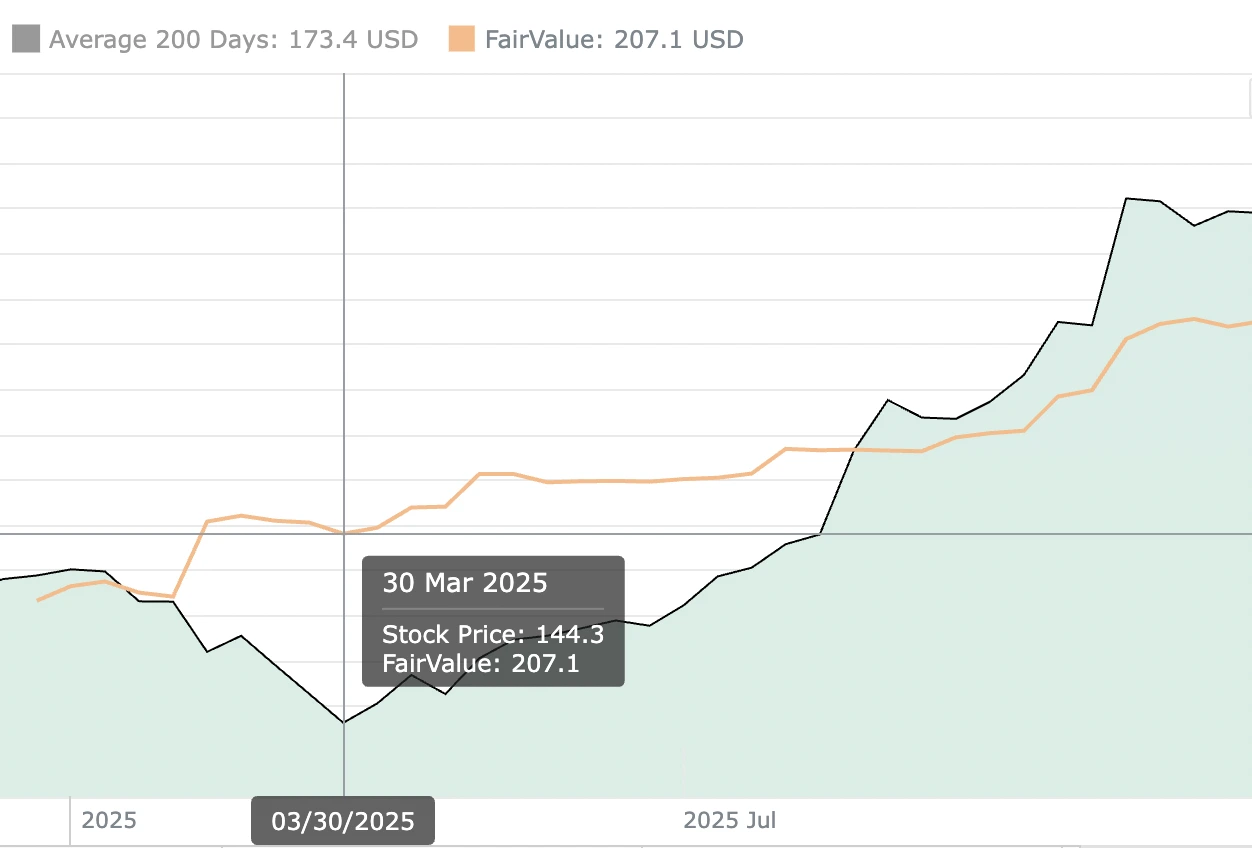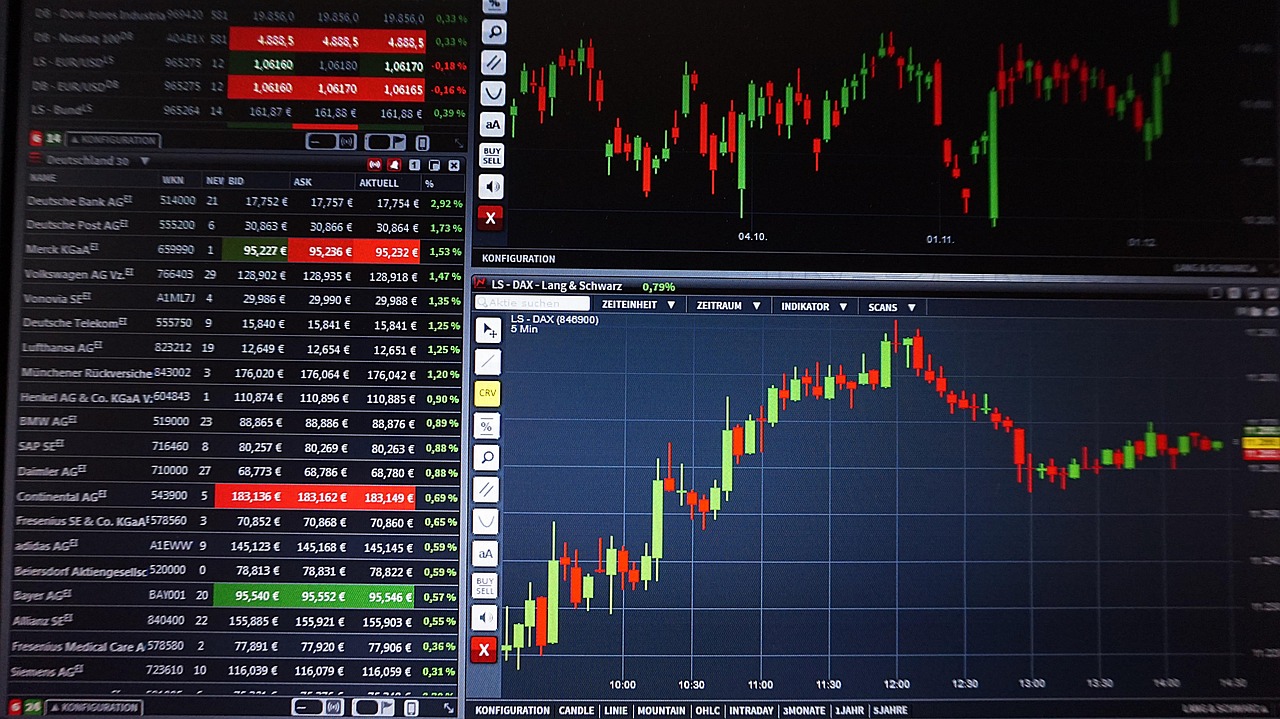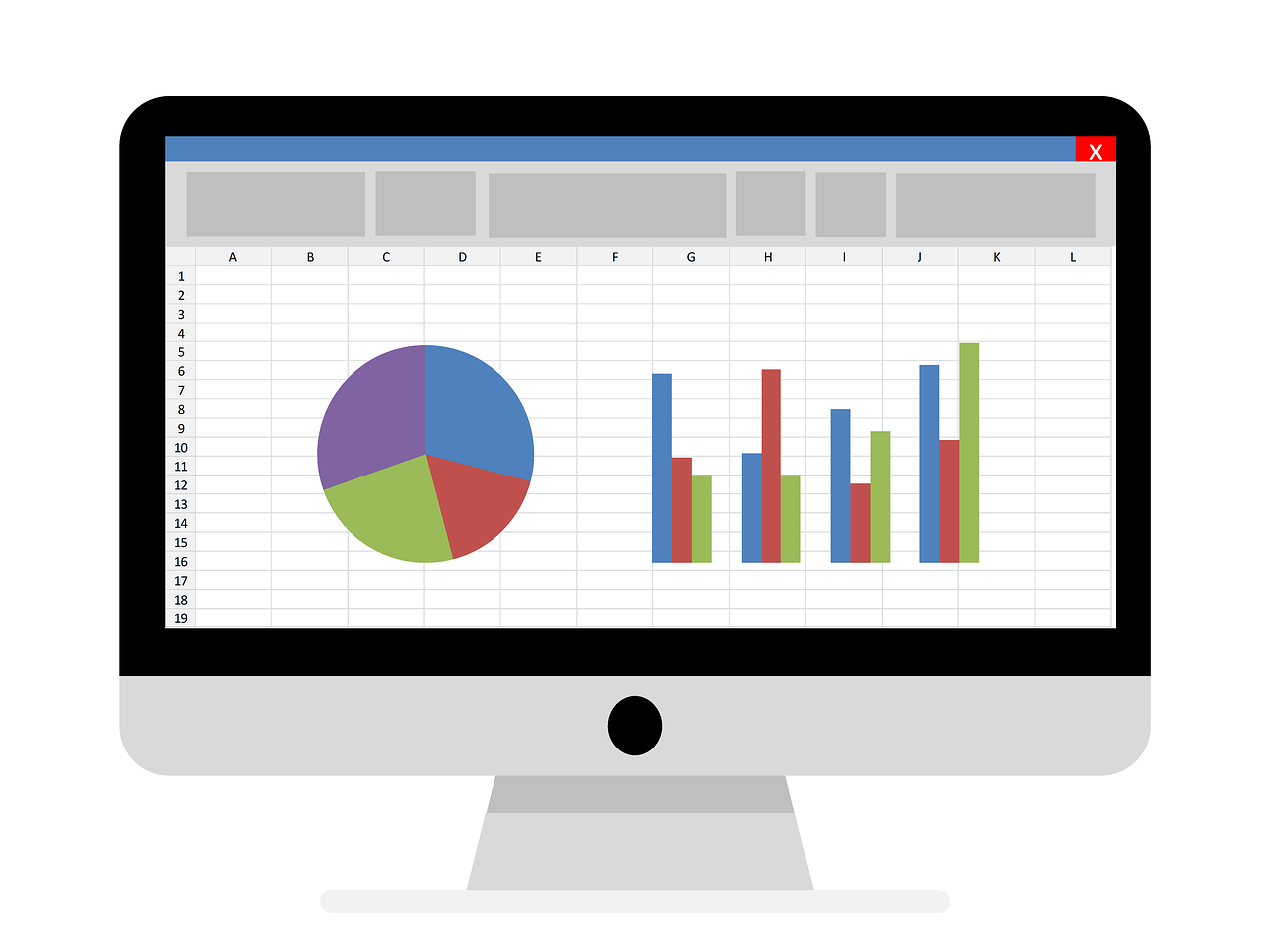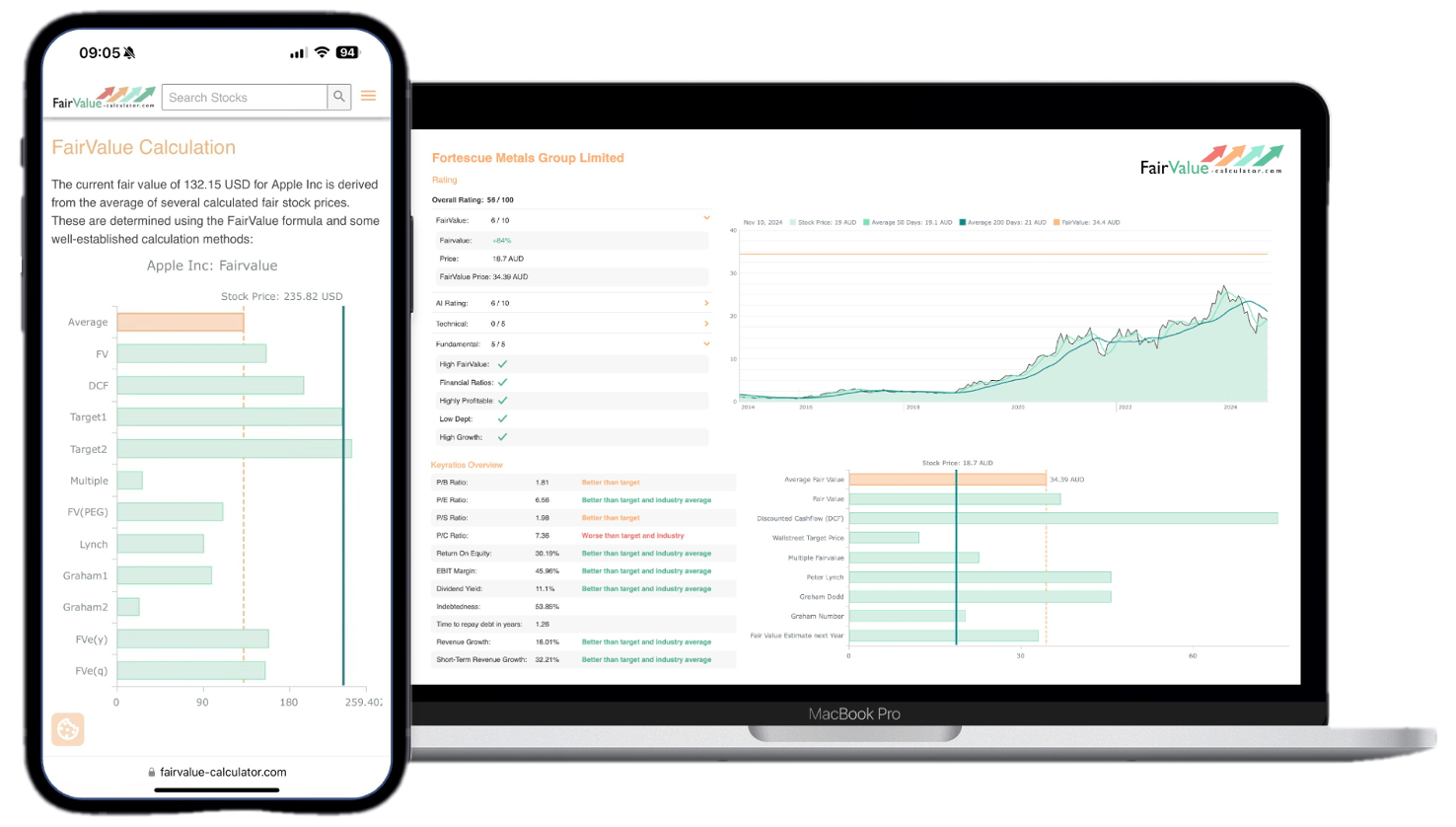Just when you think you’ve heard it all, the stock market surprises us yet again. As headlines scream about looming economic storms and the unpredictable influences of political figures like Trump and Powell, it’s tempting to let fear drive your investment decisions. But here’s the truth: trying to predict a stock market crash is like chasing shadows. Even the wisest of Wall Street sages falter when attempting to pinpoint the exact moment the market will take a nosedive, as evidenced by the unforeseen 1987 crash. This unpredictability raises an important question: should you really gamble with your financial future by relying on guesswork?
Instead of trying to outsmart the market with futile predictions, consider a more grounded approach: managing your cash wisely, like a seasoned pro. By focusing on dynamic cash allocation rather than succumbing to paranoia or media noise, you can turn market fluctuations into opportunities. The innovative Market Watch Tool at fairvalue-calculator.com provides a clear-eyed assessment of where the market stands, whether it’s cheap, neutral, or expensive, allowing you to adjust your cash holdings confidently. Imagine having cash ready to deploy just when others panic, transforming potential losses into gains. Stay with us as we unravel smarter cash management strategies that promise stability even amidst market chaos.
How often does a stock market crash occur in a year?
Stock market crashes are rare events, often separated by multiple years of steady gains and occasional corrections. Historically, a broad market drop of 10% or more happens roughly one to two times per decade, not each year.
Shorter, sharper declines—like the sudden October 1987 crash—occur even less frequently. Understanding that major crashes are outliers helps investors appreciate why timing the market around them is so perilous.
Why does the stock market crash affect some people more than others?
Individual impact varies based on portfolio composition and time horizon. Younger investors with long-term outlooks can often ride out a crash, while retirees relying on withdrawals may feel the pinch immediately.
Moreover, leverage, concentration in certain sectors, and emotional reactions amplify losses for some. Those with diversified, cash-buffered strategies tend to weather downturns with less stress and fewer permanent losses.
Will the stock market crash in the future?
Future crashes are inevitable; markets move in cycles and extremes. Predicting the exact timing is impossible, but history shows that economic shocks, policy shifts, and unforeseen events trigger sharp sell-offs.
Rather than forecasting a crash, investors should plan for volatility. Embracing strategies that allocate cash when valuations rise helps cushion the blow and position for recovery.
Explore our most popular stock fair value calculators to find opportunities where the market price is lower than the true value.
- Peter Lynch Fair Value – Combines growth with valuation using the PEG ratio. A favorite among growth investors.
- Buffett Intrinsic Value Calculator – Based on Warren Buffett’s long-term DCF approach to determine business value.
- Buffett Fair Value Model – Simplified version of his logic with margin of safety baked in.
- Graham & Dodd Fair Value – Uses conservative earnings-based valuation from classic value investing theory.
- Intrinsic vs. Extrinsic Value – Learn the core difference between what a company’s really worth and what others pay.
- Intrinsic Value Calculator – A general tool to estimate the true value of a stock, based on earnings potential.
- Fama-French Model – For advanced users: Quantifies expected return using size, value and market risk.
- Discount Rate Calculator – Helps estimate the proper rate to use in any DCF-based valuation model.
Can the stock market crash and never recover?
While individual stocks can fail permanently, the broad market has always recovered from crashes over time. Innovations and economic growth drive equity values upward after downturns.
Patience is key. Despite headline-grabbing drops, a diversified equity portfolio held through multiple crashes has consistently resumed its upward trend over decades.
Will the US stock market crash soon Where are we going in the next 6 months to 1 year?
No one knows with certainty. Tensions around Trump, Powell’s rate talk, and the dollar’s strength create noise, but they don’t reliably predict a crash.
Instead of speculating, use objective valuation metrics. If the Market Watch Tool signals an expensive market, consider boosting cash. If it flags a bargain, stay fully invested.
💡 Discover Powerful Investing Tools
Stop guessing – start investing with confidence. Our Fair Value Stock Calculators help you uncover hidden value in stocks using time-tested methods like Discounted Cash Flow (DCF), Benjamin Graham’s valuation principles, Peter Lynch’s PEG ratio, and our own AI-powered Super Fair Value formula. Designed for clarity, speed, and precision, these tools turn complex valuation models into simple, actionable insights – even for beginners.
Learn More About the Tools →Why does the stock market crash and how can investors protect themselves from it?
Crashes arise from fear-driven selling, bubbles bursting, and external shocks. Protection comes from diversification, hedging, and holding an appropriate cash buffer.
Implement a dynamic cash allocation strategy—grading your holdings based on market valuation rather than headlines—to reduce downside risk and seize opportunities when others flee.

Understanding Stock Market Crash Myths
Many believe crashes strike on a predictable cadence or that “this time is different.” Such myths lead to mistimed exits and missed recoveries.
Dispelling these misconceptions, like the notion that political drama alone triggers a crash, aligns expectations with reality and fosters smarter decision-making.
The Pitfalls of Trying to Predict Market Crashes
Timing the top is seductive but dangerous. Selling early means locking in opportunity costs, while staying out risks missing rebounds.
Poor predictions erode returns over time. A rules-based cash management plan removes emotion, replacing guesswork with disciplined responses to valuation signals.
Lessons Learned from Historical Market Crashes
The 1987 crash came without warning, and many were blind sided. Yet, those who maintained liquidity could buy at steep discounts.
After 2008’s turmoil, investors who followed objective metrics regained ground quickly, underscoring that disciplined, data-driven approaches outperform panic.
Embracing a Grounded Approach to Cash Management
A grounded approach means setting cash targets based on fair-value assessments, not gut feelings. It brings clarity and reduces stress during turbulence.
By defining cash thresholds, like reallocating to 36% when valuations rise—you avoid knee-jerk reactions and stay prepared for buying opportunities.
The Role of Fear and Media Noise in Investment Decisions
Headlines scream about impending doom, fueling emotional selling. Fear-driven trades often crystallize losses at market bottoms.
Filtering out media noise and relying on a valuation tool prevents you from chasing every sensational story, keeping your plan intact through volatility.
Leveraging Dynamic Cash Allocation Strategies
Dynamic allocation adjusts cash levels in response to objective signals. When the market is expensive, you hold more cash; when it’s cheap, you deploy it.
This strategy balances growth and protection, helping you stay invested during upswings and ready to buy the dip when others panic.
Utilizing Tools for Market Assessment and Decision-Making
The Market Watch Tool at fairvalue-calculator.com analyzes valuation, indicating cheap, neutral, or expensive territory. It simplifies complex data into actionable insights.
With its current 36% cash signal, you know exactly how much liquidity to hold, eliminating guesswork and aligning your portfolio to prevailing conditions.
Turning Market Fluctuations into Profitable Opportunities
When the tool signals undervaluation, you can confidently deploy cash to high-quality assets at a discount. During expensive phases, you preserve cash and avoid overpaying.
This disciplined approach turns volatility from a threat into a tactical advantage, boosting long-term returns.
Implementing Smarter Cash Management Strategies
Begin by setting clear thresholds based on objective valuation signals. Automate cash rebalancing to avoid emotional interference.
Review your cash ratio monthly against the Market Watch Tool’s recommendation. Adjust gradually to maintain discipline and protect your capital.
Conclusion: Stability Through Strategic Cash Management
Predicting a stock market crash remains a fool’s errand. The key to long-term success lies in managing cash based on fair-value metrics, not fear or headlines. By following a dynamic allocation strategy, you stay invested when markets are cheap and hold liquidity when valuations are stretched.
Embrace the Market Watch Tool’s guidance, currently suggesting a 36% cash buffer, and transform market flux into opportunity. No financial advice, just a smart tool. Try the Premium Tool for free at fairvalue-calculator.com.






